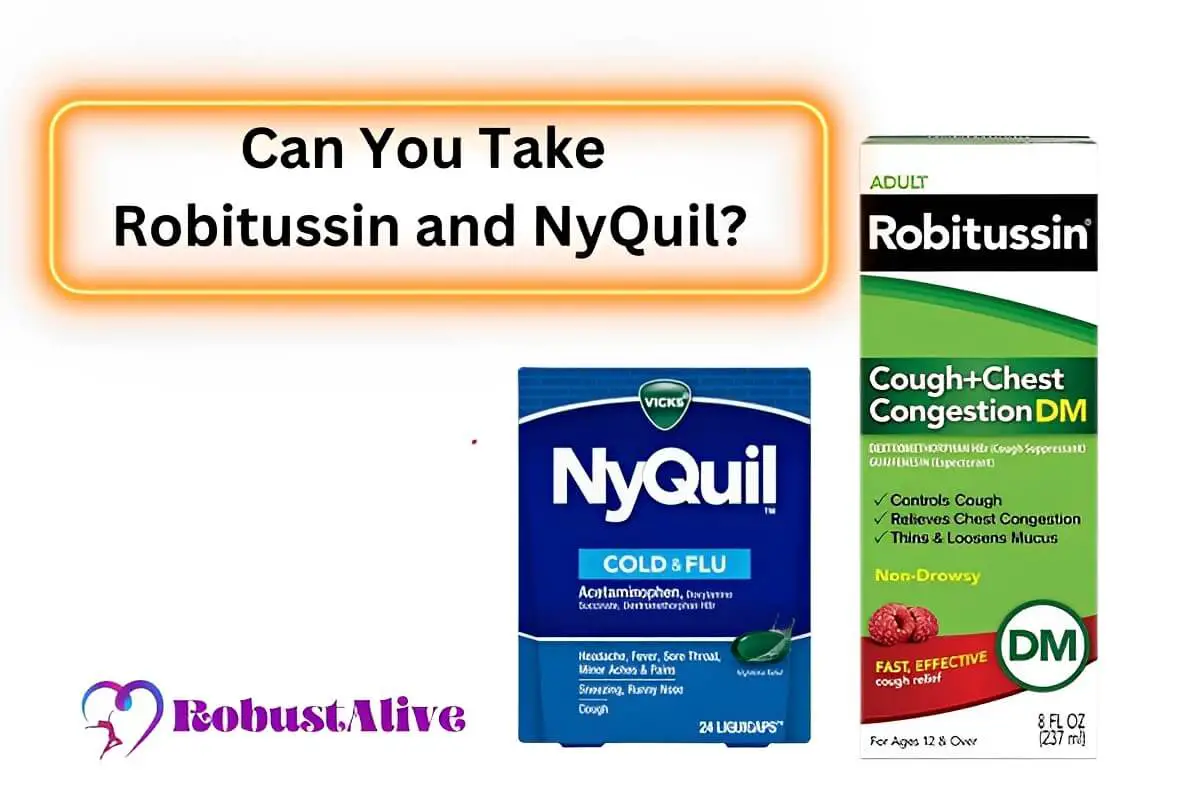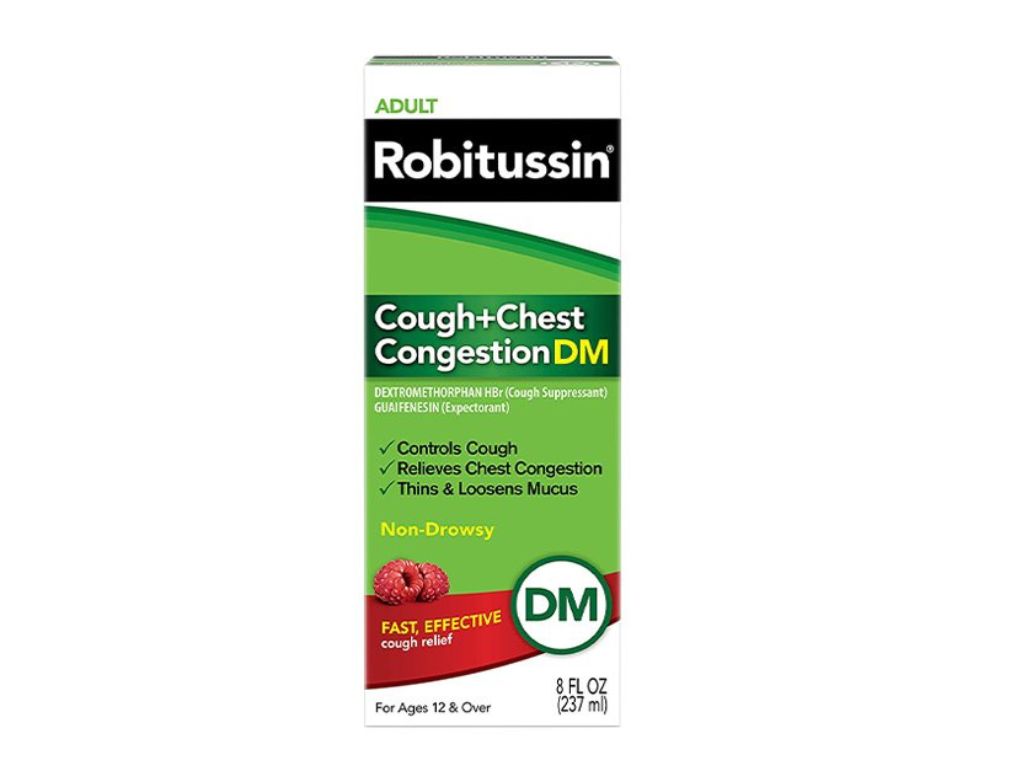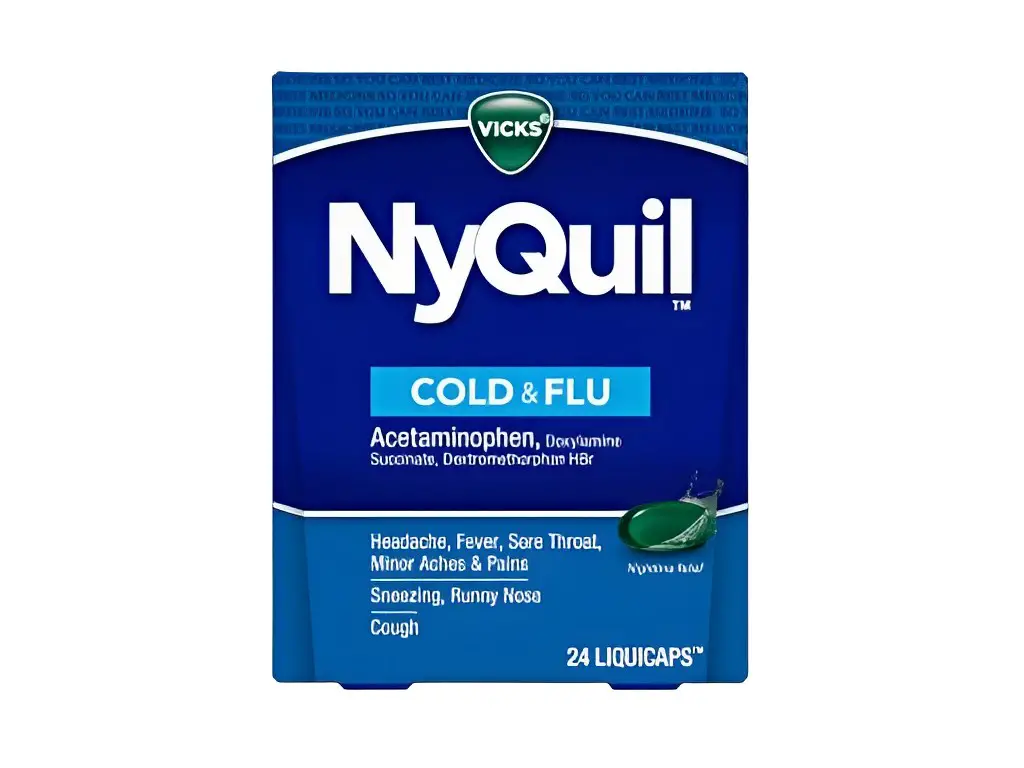Can You Take Robitussin and NyQuil?

When faced with common cold or flu symptoms, medications like Robitussin and NyQuil often come to mind as fast relievers. But, to make it more effective, a fact may have popped into your head: Can you take Robitussin and NyQuil together?
Taking Robitussin and NyQuil together is not recommended due to the overlapping ingredients. Because there are few common ingredients between the two, resulting in an overdose. Moreover, increased risk of side effects.
Before mixing them, it’s important to understand possible interactions and hazards. Hence, this post will define each medication’s components, side effects, and safety measures. Besides that, in this article, we will highlight their compatibility when used together. Read on.
Can You Take Robitussin and NyQuil Together?
Robitussin and NyQuil are both over-the-counter medications. As the functions of Robitussin and NyQuil are more or less the same, you may also find similarities in their ingredients. So it’s necessary to know them in detail before deciding whether to take the medications at a time.
-
Robitussin ingredients, side effects, dosage, and its purpose
To know the function of Robitussin, we first have to know its main ingredients. So here we are presenting the active ingredients and their purposes,

Source: Robitussin.com
1. Active ingredients and their effects
| Active ingredients (in each 20 ml) | Quantity (in each 20 ml) | Purposes |
| Dextromethorphan HBr | USP 20 mg | Work to suppresses cough |
| Guaifenesin, USP | 200mg | Work as an expectorant to drain human airways and clear chest congestion |
2. Inactive ingredients
Sodium benzoate, sodium citrate, sodium gluconate, polyethylene glycol, propylene glycol, menthol, natural and artificial flavors, carboxymethylcellulose sodium, FD&C blue no. 1, FD&C red no. 40, glycerin, liquid glucose, sodium gluconate, triacetin, xanthan gum, and sucralose
3. Possible side effects of Robitussin
It is important to be aware of possible side effects and precautions. Here some potential side effects are,
- dizziness
- lightheadedness
- drowsiness
- nervousness
- restlessness
- nausea
- vomiting
- stomach pain
4. Recommended dosage and frequency
This medicine is not suitable for children under 12 years old. Twelve years and older can take 20 ml every 4 hours.
-
Description of NyQuil and its Purpose
NyQuil is available in different formulations, such as NyQuil Cold & Flu, NyQuil Severe, ZzzQuil, Vicks Quil, and NyQuil Cough. However, some questions may arise: What is NyQuil, and how does it work? So here, we will share NyQuil ingredients, side effects, and dosage.

Source: vicks.com
1. Active ingredients and their effects
|
Active Ingredients |
Quantity | Purposes |
| Acetaminophen | 325 mg |
Pain reliever, fever reducer |
|
Dextromethorphan HBr |
15 mg | Cough suppressant |
| Doxylamine succinate | 6.5mg |
Antihistamin |
2. Inactive ingredients
Gelatin, glycerin, povidone, propylene glycol, polyethylene glycol, D&C Yellow No. 10, FD&C Blue No. 1, sorbitol special, and titanium dioxide.
3. Possible side effects and precautions
- Drowsiness,
- dizziness,
- blurred vision,
- upset stomach,
- nausea,
- nervousness,
- constipation, or dry mouth/nose/throat may occur.
4. Dosage and frequency
Children aged 12 years or older can take NyQuil. In that case,1 dose means 2 tablespoons every 6 hours. However, there is a special children’s version, “Children’s NyQuil.” Certainly, 6 years and older can take this.
Point to be noted, don’t exceed 4 doses in 24 hours.
Interactions, Risks, potential side effects of combining the medications and warnings
-
Interaction Between Robitussin and Nyquil
As we said before, you can’t take both together. So, here are some points of interaction between Robitussin and NyQuil that clearly explain why you can’t do so. The main reasons are the followingly,
Overlapping active ingredients: Both contain dextromethorphan. Taking these medications together may increase the risk of extreme drowsiness.
Increased sedation: Doxylamine succinate is one of the active chemicals in NyQuil that can make you sleepy. The possibility of excessive sedation may occur if Robitussin is added.
-
Interactions with other medication
Here is a simplified representation of a table showing potential interactions between Robitussin, NyQuil, and other medication classes:
|
Medication Class |
Examples | Interaction with Robitussin and NyQuil |
| MAOIs (Monoamine Oxidase Inhibitors) | Phenelzine, Isocarboxazid, Selegiline |
Increased risk of serotonin syndrome which can result in minor shivering and diarrhea to severe muscle rigidity, fever, and convulsions. Severe serotonin syndrome can cause death. l. |
|
SSRIs (Selective Serotonin Reuptake Inhibitors) |
Fluoxetine, Sertraline, Escitalopram | Possible risk of serotonin syndrome. |
| Benzodiazepines | Alprazolam, Lorazepam, and Diazepam |
Enhanced sedative effects. Increased risk of drowsiness and respiratory depression. |
|
Opioids |
Morphine, Oxycodone, Hydrocodone, | Increased sedation causes respiratory depression. |
| Antidepressants | Nortriptyline,, Imipramine and Amitriptyline |
Enhanced sedative effects. Increased risk of drowsiness and other side effects. |
|
Antihypertensive medications |
Lisinopril , Atenolol,Amlodipine | Increased blood pressure may occur due to phenylephrine in NyQuil. |
| Sedating Antihistamines | Doxylamine, Diphenhydramine |
Enhanced sedative effects. |
|
Alcohol |
N/A |
intensify the sedative effects |
-
Warning
NyQuil and Robitussin can make things worse in the following situations:
- Don’t take them if you have an allergy or sensitivity to dextromethorphan.
- These medicines are not suitable for children under a certain age. Always follow the doctor’s recommendation and check the age restrictions mentioned on the packaging.
- Whoever suffers from any the illnesses like high blood pressure, chronic obstructive pulmonary disease (COPD), kidney, chronic liver, or heart disease, diabetes, glaucoma urinary retention, glaucoma, or asthma should give them some thought before using them.
- In the early stages of pregnancy, ingestion of these causes congenital disabilities. The element phenylephrine in Nyquil may limit blood flow through the placenta. Alcohol, on the other hand, is another element that causes pregnancy loss or developmental abnormalities in the unborn child.
Be aware that products like Nyquil Severe Cold & Flu and Nyquil Cold & Flu Nighttime Relief Liquid contain these chemicals and should be avoided.
If you are suffering from any of the illnesses listed above, consult a pharmacist before using NyQuil or Robitussin. They can guide the safety and appropriate use of these medications.
Frequently Asked Questions (FAQs)
-
Can I take Nyquil 2 hours after Robitussin?
The action of Robitussin starts between 15-30 minutes. Additionally, the effect lasts for 4-6 hours in adults. However, taking two of these medicines may cause an overdose of dextromethorphan and guaifenesin. So you can’t take Nyquil within two hours after taking Robitussin. It may intensify sedative effects.
-
Why is sodium chloride used in cough suppressants?
Sodium chloride helps you cough up any trapped mucus in your chest. Basically, it is used to treat conditions such as cystic fibrosis, asthma, or chronic obstructive pulmonary disease (COPD). Therefore, all types of cough suppressants contain sodium.
-
Can I take Robitussin during the day and NyQuil at night?
Taking Robitussin during the day and NyQuil at night is generally harmless if there are sufficient gap-taking doses. However, consulting with a doctor, nurse, or pharmacist is better to get specific guidance.
Conclusion
In conclusion, I hope now you have your answer to the question, “Can I take Robitussin and Nyquil together?” When it comes to taking NyQuil and Robitussin at the same time, caution is key. In fact, mixing these medications for quick relief may be effective in some ways. Nevertheless, it’s important to consider the consequences.
Above all, speaking with a healthcare provider or pharmacist will be best to ensure your well-being. Remember that while choosing medicine combos, your health is worth the extra attention and consideration.





